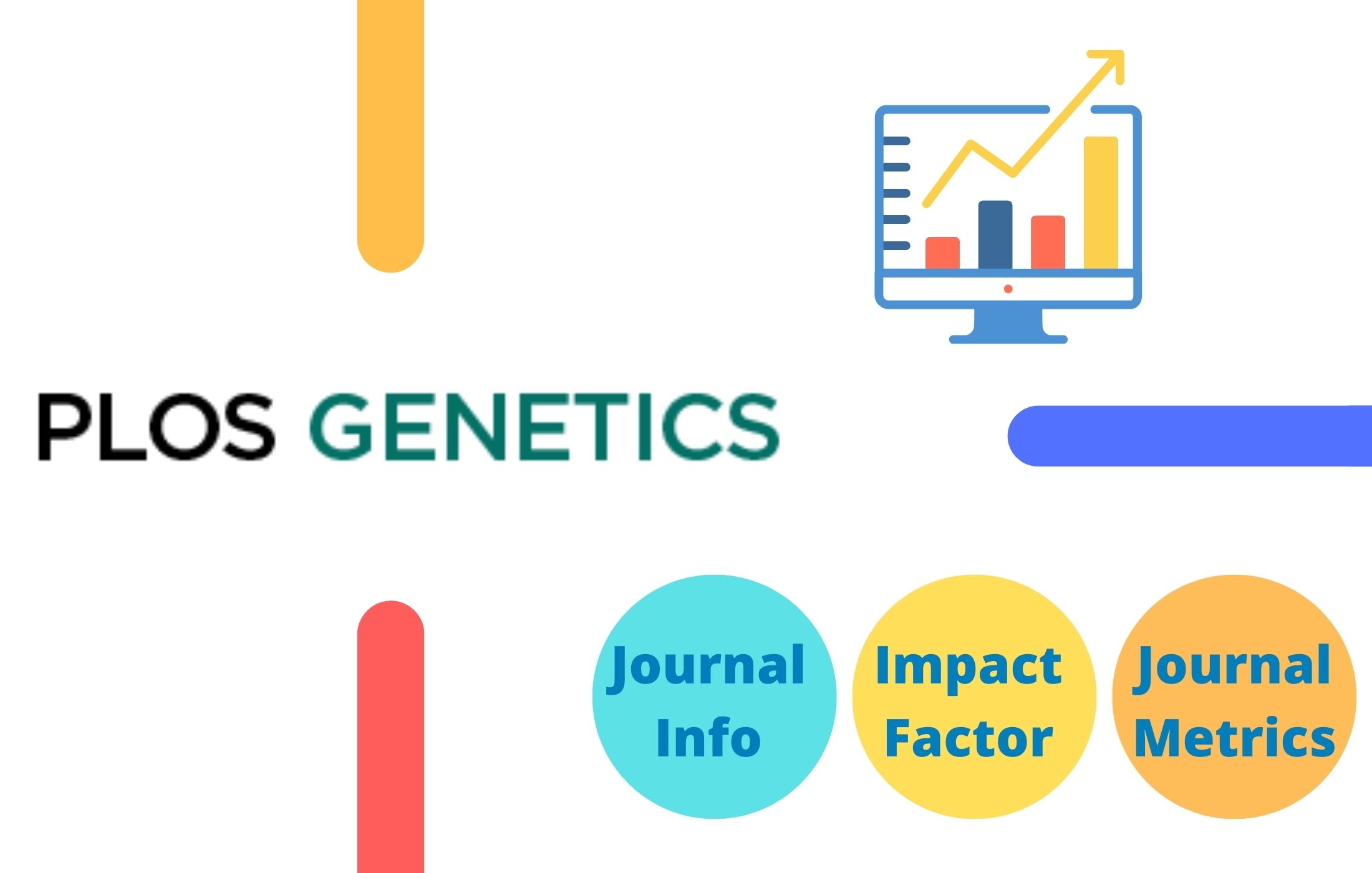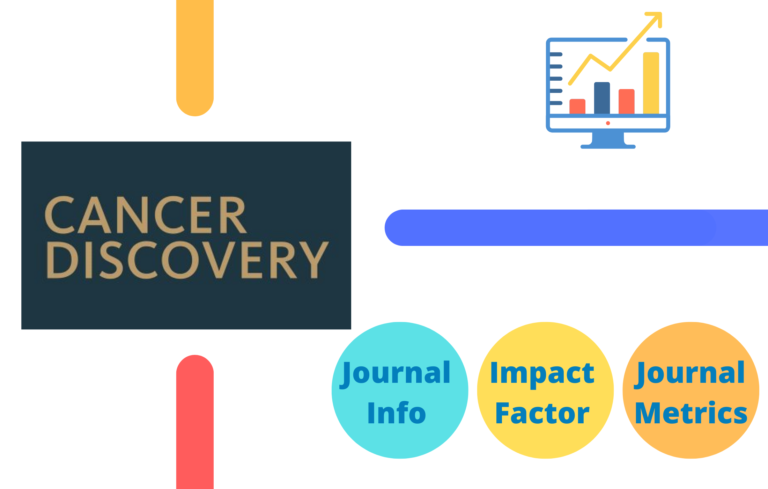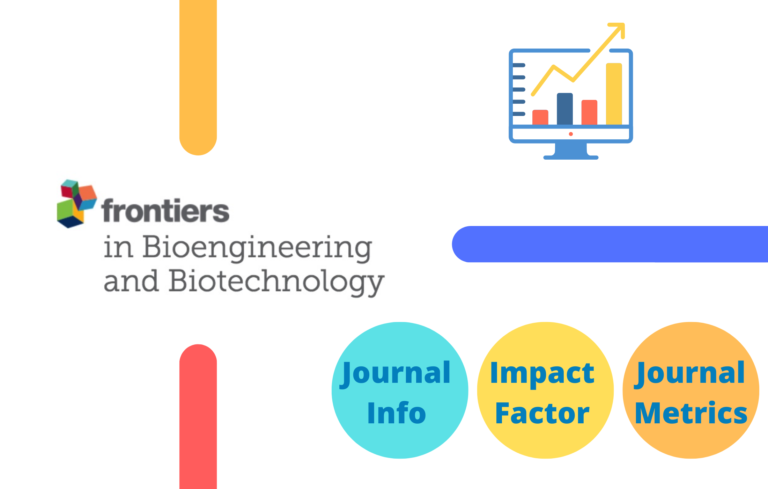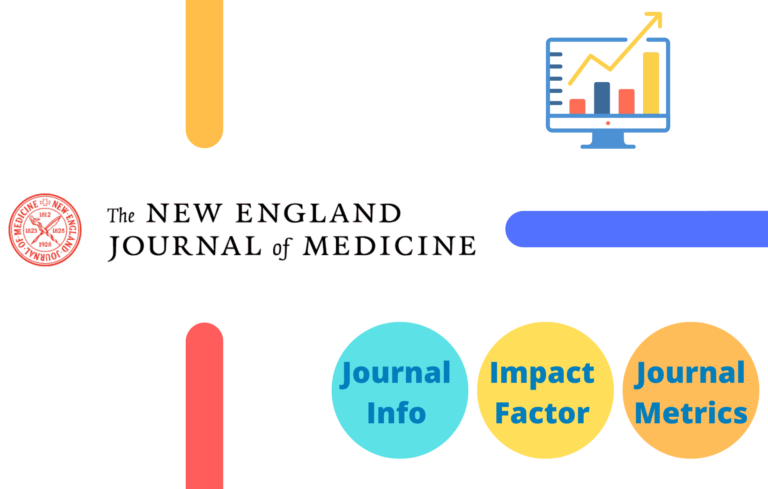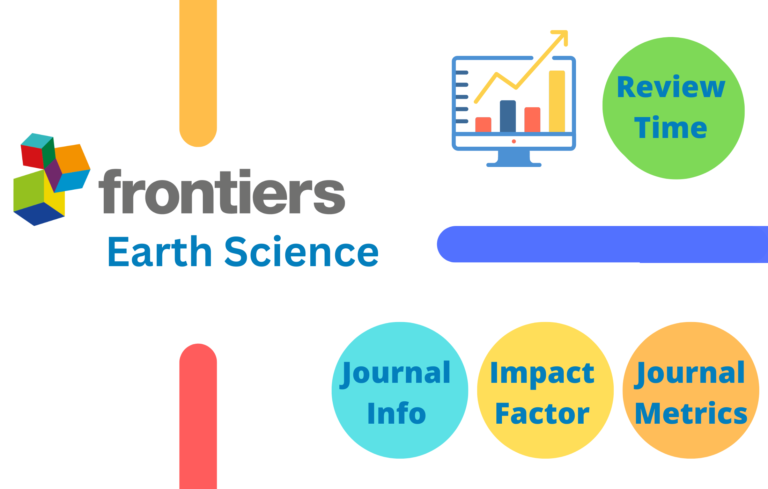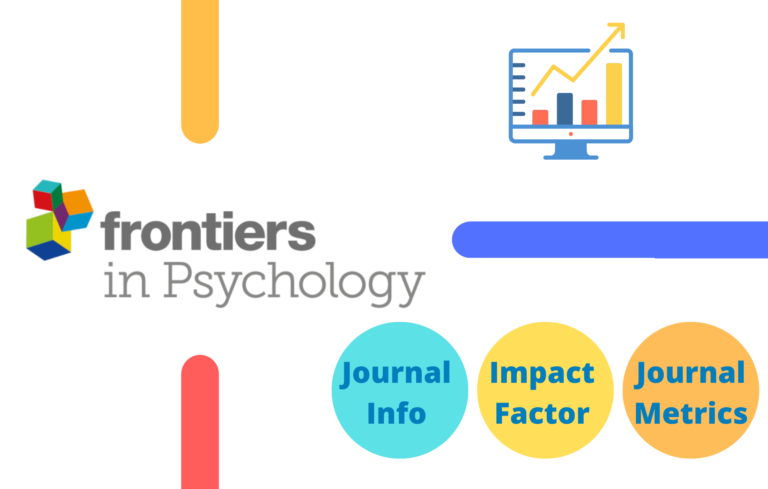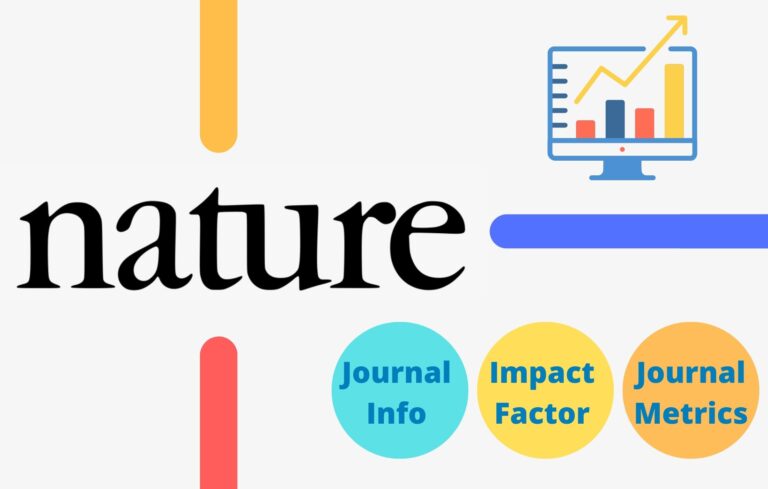Here in this post, apart from PLoS Genetics Impact Factor, I have tried to compile all the necessary information a research scholar would seek before publishing an article in the journal.
About PLoS Genetics Journal
PLoS Genetics is a peer-reviewed open-access scientific journal established in 2005 and published by the Public Library of Science. The founding editor-in-chief was Wayne N. Frankel.
PLoS Genetics Impact Factor
Impact Factor (IF) or often called journal impact factor (JIF) is an index provided by an analytics company named Clarivate. The impact factor is calculated by dividing the number of times the articles are cited in the last two years by the total number of publications in those two years.
- Total Citations in 2020 and 2021 = 500
- Total Number of Publications in 2020 and 2021 = 100
- Impact Factor of the Journal in 2022 = 500/100 = 5
PLoS Genetics Impact Factor (2017-2022)
- PLoS Genetics Impact Factor 2017 – 5.54
- PLoS Genetics Impact Factor 2018 – 5.224
- PLoS Genetics Impact Factor 2019 – 5.175
- PLoS Genetics Impact Factor 2020 – 5.917
- PLoS Genetics Impact Factor 2021 – 6.020
- PLoS Genetics Impact Factor 2022 – 4.5 (updated 29 June 2023)
PLoS Genetics Impact Factor 2022
PLoS Genetics H-index
The h index is a metric for evaluating the cumulative impact of an author’s scholarly output and performance; measures quantity with quality by comparing publications to citations.

The h index of PLoS Genetics Journal is 244, which means among all the published articles in this journal, 244 of these publications have received at least 244 citations each.
PLoS Genetics Journal Metrics
PLoS Genetics CiteScore
CiteScore (CS) of an academic journal is a measure reflecting the yearly average number of citations to recent articles published in that journal.
PLoS Genetics SCImago Rank
The SCImago Journal Rank (SJR) indicator is a measure of the scientific influence of scholarly journals that accounts for both the number of citations received by a journal and the importance or prestige of the journals where the citations come from.
| Year | SCImago Journal Rank (SJR) |
|---|---|
| 2018 | 4.001 |
| 2019 | 3.744 |
| 2020 | 3.587 |
| 2021 | 2.700 |
PLoS Genetics Editorial Board Members
Below are the latest editorial board members of PLoS Genetics
Editor-in-chief
- Gregory S. Barsh
- Gregory P. Copenhaver
Section Editors
Cancer Genetics
- David J. Kwiatkowski
- Peter McKinnon
Epigenetics
- Wendy A. Bickmore
- John M. Greally
Evolution
- Kirsten Bomblies
- Bret Payseur
Methods
- David Balding
- Xiaofeng Zhu
- Quanjiang Ji
- Chengqi Yi
Human Genetic Variation and Disease
- Hua Tang
- Scott M. Williams
Plant Genetics
- Claudia Köhler
- Li-Jia Qu
Prokaryotic Genetics
- Josep Casadesús
- Lotte Søgaard-Andersen
PLoS Genetics Publication Fee
PLoS Genetics is an open-access journal. The publication fee for PLos Genetics is $2655 (excluding taxes).
Publication in any PLOS journal is free for authors whose research is funded primarily (50% or more of the work contained within the article) by an institution located in a Research4Life Group A country.
Authors from Group B countries who need additional support should apply for PLOS Publication Fee Assistance (below) instead of Research4Life
PLoS Genetics Review Time
PLoS Genetics prioritizes rapid publication
| Initial decision to review | 4 days |
| First review round | 42 days |
PLoS Genetics Reference Style
PLoS Genetics uses the reference style outlined by the International Committee of Medical Journal Editors (ICMJE), also referred to as the “Vancouver” style.
| Published articles | Hou WR, Hou YL, Wu GF, Song Y, Su XL, Sun B, et al. cDNA, genomic sequence cloning and overexpression of ribosomal protein gene L9 (rpL9) of the giant panda (Ailuropoda melanoleuca). Genet Mol Res. 2011;10: 1576-1588. |
| Accepted, unpublished articles | Same as published articles, but substitute “Forthcoming” for page numbers or DOI. |
| Online articles | Huynen MMTE, Martens P, Hilderlink HBM. The health impacts of globalisation: a conceptual framework. Global Health. 2005;1: 14. Available from: http://www.globalizationandhealth.com/content/1/1/14 |
| Books | Bates B. Bargaining for life: A social history of tuberculosis. 1st ed. Philadelphia: University of Pennsylvania Press; 1992. |
| Book chapters | Hansen B. New York City epidemics and history for the public. In: Harden VA, Risse GB, editors. AIDS and the historian. Bethesda: National Institutes of Health; 1991. pp. 21-28. |
| Deposited articles (preprints, e-prints, or arXiv) | Krick T, Shub DA, Verstraete N, Ferreiro DU, Alonso LG, Shub M, et al. Amino acid metabolism conflicts with protein diversity. arXiv:1403.3301v1 [Preprint]. 2014 [cited 2014 March 17]. Available from: https://128.84.21.199/abs/1403.3301v1 |
PLoS Genetics Endnote Style
You can download the PLoS Genetics Endnote Style and PLoS Genetics Zotero Style
PLoS Genetics Abbreviation
The ISO 4 standard abbreviation for abstracting, indexing and referencing purposes of PLoS Genetics is “PLOS GENET“
PLoS Genetics Acceptance Rate
The acceptance rate of a journal is the ratio of the number of articles submitted to the number of articles published.
The average acceptance rate of PLoS Genetics journal is NA
PLoS Genetics Indexed in
Science is indexed in Scopus, SCImago, Web of Science, and UGC journal ranking



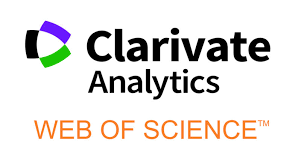
Read More
